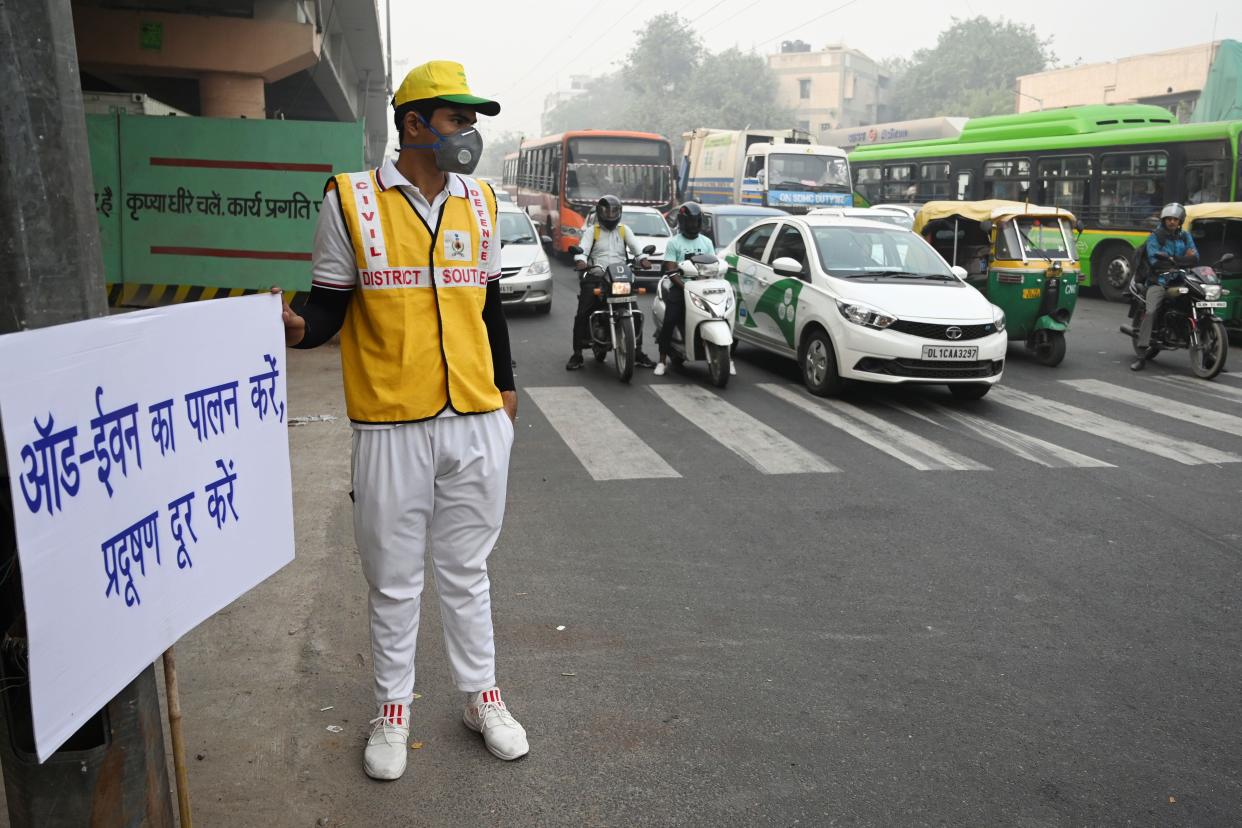Car restrictions imposed to ease Delhi's off-the-charts air pollution

This article, Car restrictions imposed to ease Delhi's off-the-charts air pollution, originally appeared on CBSNews.com
Delhi — The government of India's capital city has launched a two-week car rationing system in a desperate bid to reduce devastating air pollution choking Delhi's residents. The noxious air has sent thousands to hospitals with respiratory problems over the last week and residents say it burns their eyes just to step foot outside.
Under the measures announced Monday, private vehicles will only be allowed onto the roads on alternating days, with those bearing registration numbers ending in odd numbers on one day and then even numbers the next. The restrictions were to remain in place through November 15.
All schools and colleges in Delhi have been ordered to close this week and construction activities banned until at least Tuesday. Several hundred flights were delayed or cancelled over the weekend due to poor visibility caused by the thick layer of smog over Delhi's airport.
The most dangerous pollutants are the tiny "PM2.5" particles emitted by burning fuels. The particles are small enough to settle inside human lungs and cause severe respiratory diseases. The World Health Organization says a safe level of this particulate matter in the air is 60 milligrams per cubic meter. Levels in Delhi have been around 500 for days, putting not just children, the elderly and people with underlying health problems at risk, but everyone who steps outside.
Why is Delhi so polluted?
The air pollution in Delhi has remained high over the past several years, leading to an increase in respiratory disease among the city's 19 million inhabitants.
Dr. Arvind Kumar, a prominent chest surgeon and founder of the Lung Care Foundation that the air in the country is so bad, it effectively makes every single person living in India a smoker, by default.
"We have no non-smokers in India," Kumar told CBS News' Elizabeth Palmer. He said the filthy air is linked to patients suffering strokes, stunted brain development, heart attacks, hypertension, and birth defects, as well as an "increased incidence of all kinds of respiratory problems, diabetes, obesity, pneumonia, lung cancer."
Pollution in Delhi spikes every winter due to calmer winds and farmers in the neighboring states of Haryana, Punjab and Uttar Pradesh burning off the remnants of their crops. The farmers burn millions of tons of crop waste every year before sowing the winter seeds.
"Delhi is choking every year, and we are not able to do anything," the court said. "People are dying and it can't happen in a civilized country ... No one is safe even inside homes; it is atrocious."
A study released earlier this year found that India's poisonous air kills more than 100,000 children under 5 every year. Last year, a United Nations report said 14 of the world's 15 most polluted cities were in India.
Dad gets to see son graduate high school from hospice bed
Hundreds of volunteers help move books from old library
Trump welcomes Nationals to White House after World Series win

